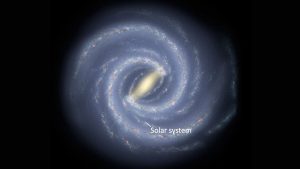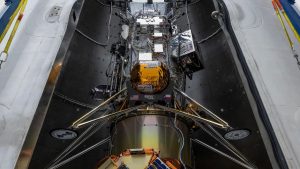The Salisbury spy poisonings five years on: Did UK’s response change Putin’s pathway to invading Ukraine?
When Sergei Skripal and his daughter Yulia were found unconscious on a bench in Salisbury city centre – five years ago to this day – few would have known that a huge diplomatic crisis was about to erupt.
Mr Skripal, a former Russian intelligence officer turned British double agent, had been targeted with the deadly nerve agent novichok in an assassination attempt, which Western officials have since claimed leads all the way back to the Kremlin.
Though the pair survived the attack, Dawn Sturgess, a mother-of-three who came into contact with the nerve agent from a discarded perfume bottle, thought to have been used by the assassins to administer to the door handle of the Skripals’ home, later died from her exposure to the chemical.
The incident sparked a huge diplomatic row between the UK and Russia, which denied any involvement in the incident, even after UK intelligence forces shared details of two Russian men alleged to have carried out the attack.
A famously frosty meeting between the UK’s then-prime minister, Theresa May, and Russian president Vladimir Putin followed, while Britain expelled 23 diplomats and imposed some limited financial sanctions on assets that “threatened life or property”.
It was, at the time, the strongest response in relation to Putin’s Russia.
According to Keir Giles, an expert in security issues relating to Russia, it was also a significant step up from the “feeble response” to the poisoning of another former Russian agent, Alexander Litvinenko, in London in 2006.
Mr Giles, and senior consulting fellow at Chatham House, the Royal Institute of International Affairs, told Sky News: “The response to Salisbury was a success story for the UK. It was about as powerful as it could be.
“The UK managed to rally behind it huge solidarity from the West.”
He said one key decision which would have particularly troubled Putin was the naming and shaming of the two alleged assassins, Alexander Petrov and Ruslan Boshirov, who both denied involvement.
“Putin would have likely hoped for these actions to have been undetected. Suddenly, everybody knows about it and there is no secrecy to it,” Mr Giles added.
Despite this, novichok was used again, against Russian opposition leader Alexei Navalny, who fell ill during a flight to Moscow in 2020. He later recovered.
The UK’s response to the alleged Russian aggression also did little to dissuade Putin from launching an invasion of Ukraine in 2022.
“The UK’s response would have had no effect on Putin’s conclusion and is independent of Russia’s situation with the invasion of Ukraine.
“It is a completely different issue in Russia – because Salisbury is really about dealing with a former Russian intelligence officer in the UK.”
The war, he said, was instead about satisfying Putin’s longer-term ambition to restore Russia as an imperial power on the world stage.
However, he said the response to Salisbury would have had an impact, particularly on Putin’s confidence to attempt other similar assassinations in the UK.
“There are risks (to these incidents) and these would have to be weighed against the benefit of carrying out a successful attempt.
“The UK’s response to Salisbury would have raised that risk.”
Professor Tomila Lankina, a professor of international relations at London School of Economics (LSE), who has analysed disinformation campaigns in the wake of Russia’s annexation of Crimea and aggression in Ukraine, also believes the UK’s strong response to the Salisbury poisonings would have surprised Putin.
“If you look at the Litvinenko poisoning, the responses should have been more robust, but I remember being impressed by the response to Salisbury,” she said.
Click to subscribe to the Sky News Daily wherever you get your podcasts
“Probably the kind of confidence Russia had to carry out the poisoning was preventable if the UK had more strong and forceful reactions to Russia’s past transgressions.
“But I remember being impressed by the response to Salisbury. I think it would have surprised Putin.”
Read more:
How the Salisbury poisoning unfolded – a timeline
Salisbury still affected by ‘trauma’ of novichok poisonings
Podcast: The poisoning five years on
But Professor Lankina, whose book The Estate Origins Of Democracy In Russia looks into the social structures of Russia, believes more could have been done.
“There was a dependency on Russian money, businesses who were advantaged and benefited from Russian money.”
She said she believed there was an indirect pathway between the events of the Litvinenko and Salisbury poisonings and the 2022 invasion of Ukraine.
However, she said this pathway would more likely have been broken if the West’s reaction was stronger in the wake of Russia’s annexation of Crimea in 2014.
Professor Svetlana Stephenson, a Russian-born academic living in the UK and working for London Metropolitan University, said she also believed the Salisbury poisonings were in part due to Russia believing it could act without serious repercussions.
“I don’t think that Russia would have wanted the incident to be detected. But when they did, the response was a tacit acknowledgement,” said Prof Stephenson, who has written critical articles about Putin in the country’s independent newspaper, Novaya Gazeta.
“Part of that messaging was that ‘we can do what we like’.
“In Russia, it would have just been seen as a security services situation, simply Russians dealing with someone they regard as a traitor, rather than an attack on UK soil.”
Prof Stephenson believes, for this reason, that the Salisbury attack would have had little impact on Putin’s confidence in any confrontation with the West.
“When the war first started, I thought he looked quite depressed, and you sensed something unexpected had happened, but I think the war has emboldened him and he looks like this is now the new normal,” she added.
“There is some discontent in the cities, but in provincial Russia, people seem to support the war – and even mobilisation.
“But we can only go by what we see because there is no real opposition in Russia.”




